A lot of RVs have outlets inside to help power lights, basic appliances and recharge devices.
Though the technical specifics of how they work can sometimes be unclear. Especially, if you are camping at a site that doesn’t offer up shore power.
In a time like this, you might be wondering whether or not your RV’s outlets will run on the charge of the house battery?
The short answer is that yes! But outlets in your camper are 120 volts AC and batteries are 12 Volts DC. So the only way to get 120 volts AC is using an inverter which will transform the DC power of the 12 Volt RV house batteries into the AC power that most lamps, lights and basic appliances run on.
However, just because the RV can do something, doesn’t necessarily mean it is always the best way to do it.
If you’ve always wanted to know more about the nuts and bolts details of how your RV’s electrical system works, or how to make the most out of your house batteries, then this article is for you.
What Is The Difference Between AC & DC Electricity?
Before we even take a look at a single outlet, we have to first build an clear understanding of the differences between AC (Alternating Current) and DC (Direct Current) electricity.
They are not the same, and trying to use them interchangeably can damage appliances and cause significant problems with electric efficiency.
Most RV house batteries are lead-acid or newer lithium-ion. They store DC electricity, which comes from a power source such as a generator or a battery charger.
This is the same type of electricity that runs your vehicle’s lights or your cell phone battery.
AC electricity is used by most household and RV appliances. This includes things like microwaves, coffee pots, and reading lamps.
AC even goes into a flatscreen TV where it is turned into DC to power the screen and internal technical components.
How Does DC Electricity Turn Into AC In An RV?
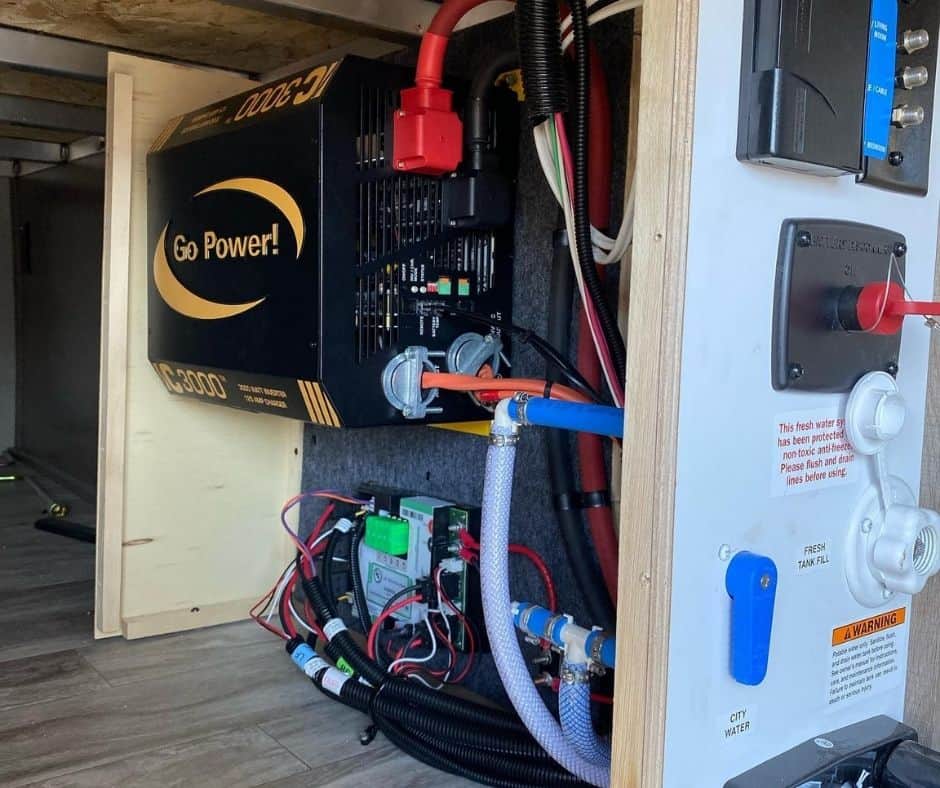
Most RVs with AC outlets and a DC house battery bank will also have some type of inverter. This is a sophisticated device that changes DC into AC.
Though a modest amount of energy is lost in the process, which might be a bit of an issue if you are boondocking off the grid and every single millivolt counts.
Though depending on where you are parked up, there might be other ways to power your RV’s outlets.
How Does An RV Get Power Other Than House Batteries?
If you are at home and you have a connection, or you are at an RV campground that offers a shore power connection, can also power your RV’s outlets.
This is a good way to save the charge in your RV’s house batteries. Most RV campgrounds will include access to electricity in the site rental.
Though there are a few privately owned campgrounds that do charge based on usage. Though these tend to be contracted for stays of a week or more.
The Different Types Of RV Outlets
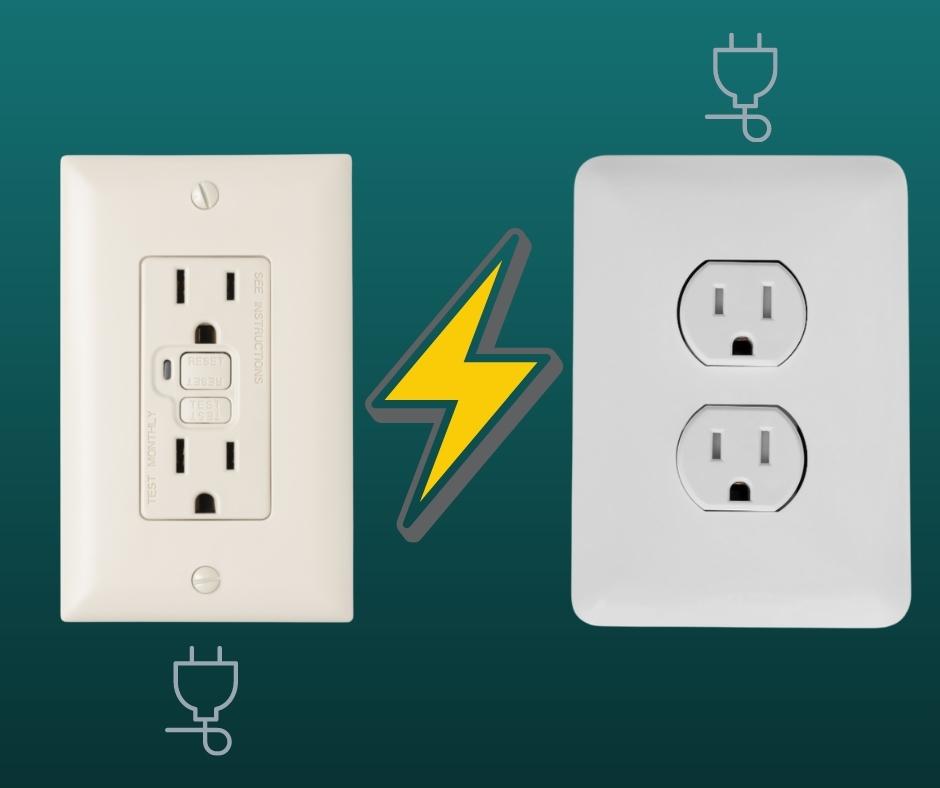
RV outlets run off the standard AC current that you would find in your house. You can just as easily take a coffee maker from your house and plug it directly into an RV outlet.
Though just like in your home, there are different types of outlets that you might find in different locations.
Why Won’t My RV Outlets Work?
RV outlets are just like the outlets in your home. They are connected to a circuit panel or fuse box.
If you run too much power through them it can blow a fuse or trip a circuit breaker.
To get power running to the outlet again you will need to replace the fuse or flip the breaker at the panel.
If the malfunctioning outlet is a GFCI, water or condensation might have gotten into the outlet, and you will need to wait for it to thoroughly dry before resetting it.
How Many Watts Can My RV Outlets Provide?
Just like the outlets in your home, your RV’s electrical outlets will be connected to either a 15 Amp or 20 Amp circuit that regulated at your RV’s fuse box or circuit breaker.
If you exceed the total capacity of that circuit, then you can expect that breaker to flip or the fuse to burn out.
The amps will be printed or stamped onto the breaker. A 15 Amp circuit can deliver a maximum of 1,800 Watts. Whereas a 20 Amp circuit can deliver up to 2,400 watts.
Conclusion
While the outlets in your RV will run off house battery power with an inverter installed in the equation, it is not the most energy-efficient means.
If possible, staying at an RV park that offers shore power will provide you with the direct connection you need to run your appliances without having to worry about the charge levels of your RV’s house batteries.
If your RV’s outlets have suddenly stopped working, start by checking the fuse box or circuit panel.
If they have been tripped or burned out, try reducing the load or number of appliances plugged into that circuit before resetting.
If everything seems in order, you should move to your RV’s house batteries.
Sometimes something as simple as a corrosion on a battery post can prevent power from flowing from the house batteries to the RV’s outlets.
Next check your RV’s inverter to make sure that it hasn’t burned out, or overheated.

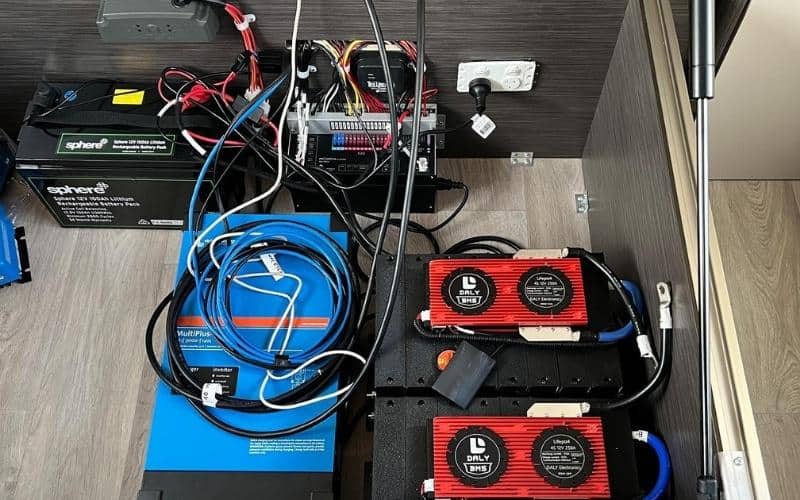
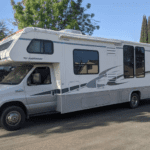
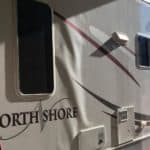
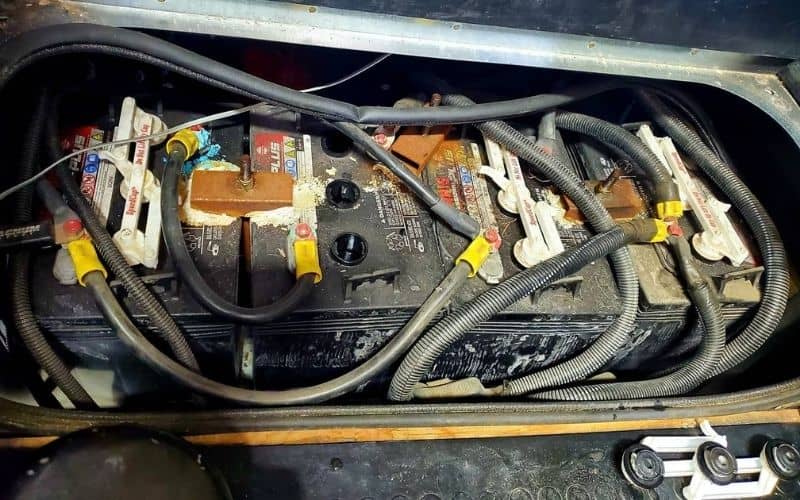
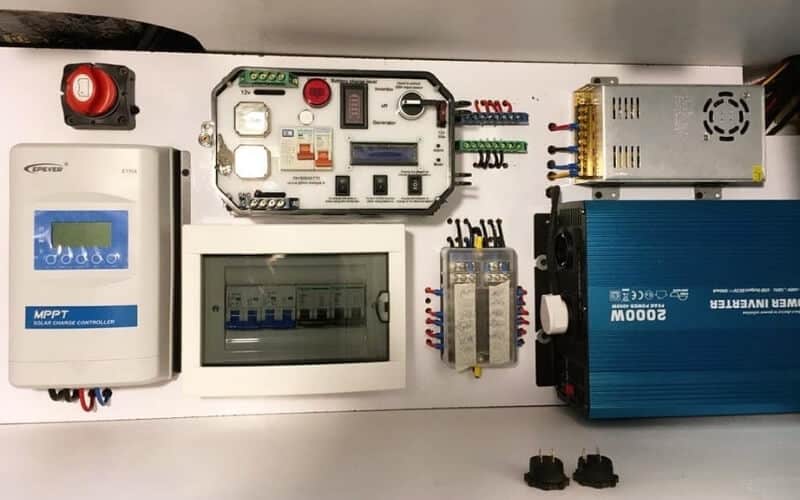
![4 Best Solar Generator For RV: Reviews in [currentyear] 8 6 Best Portable Solar Generator For Rv_ Reviews 2020](https://www.rvingknowhow.com/wp-content/uploads/2019/11/6-Best-Portable-Solar-Generator-For-Rv_-Reviews-2020.jpg)